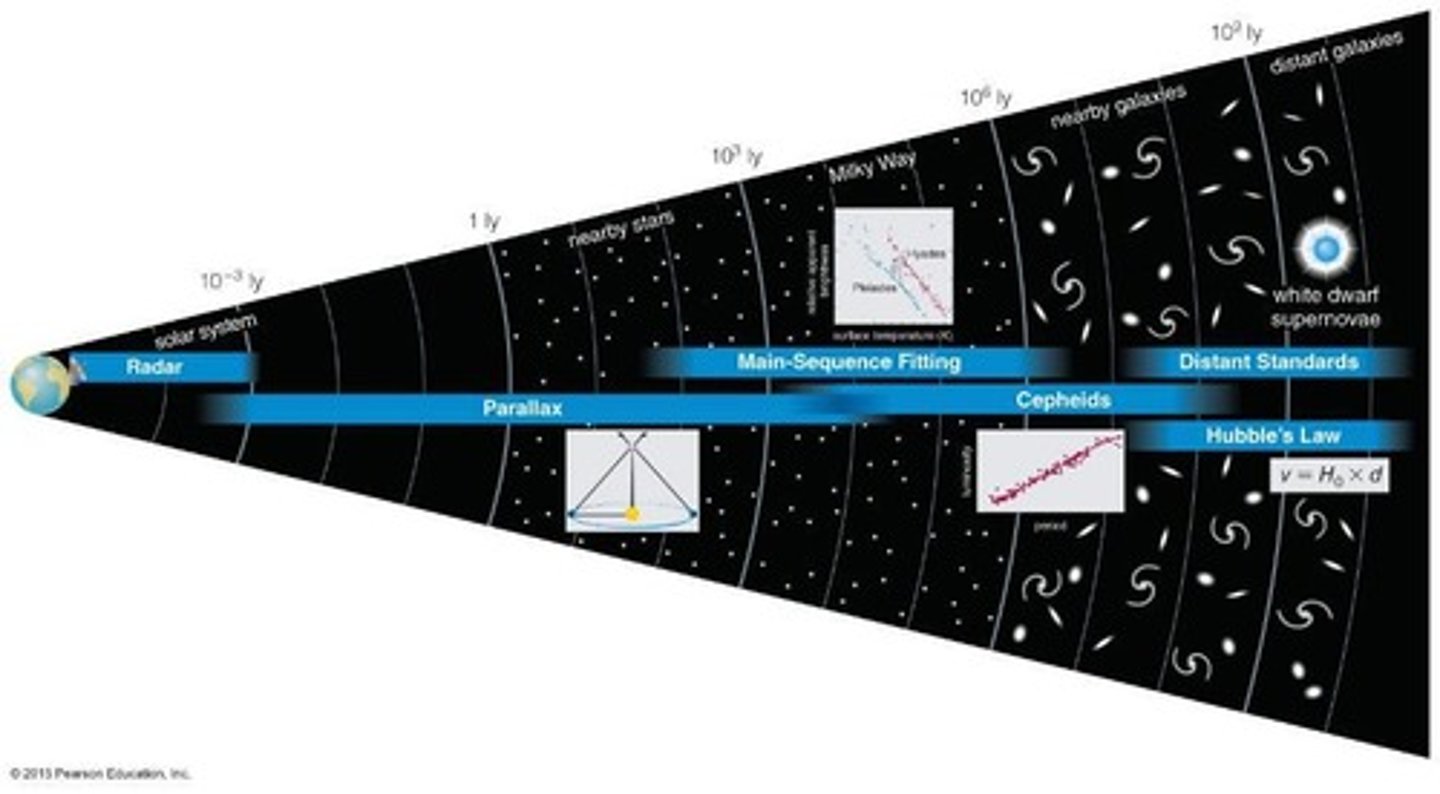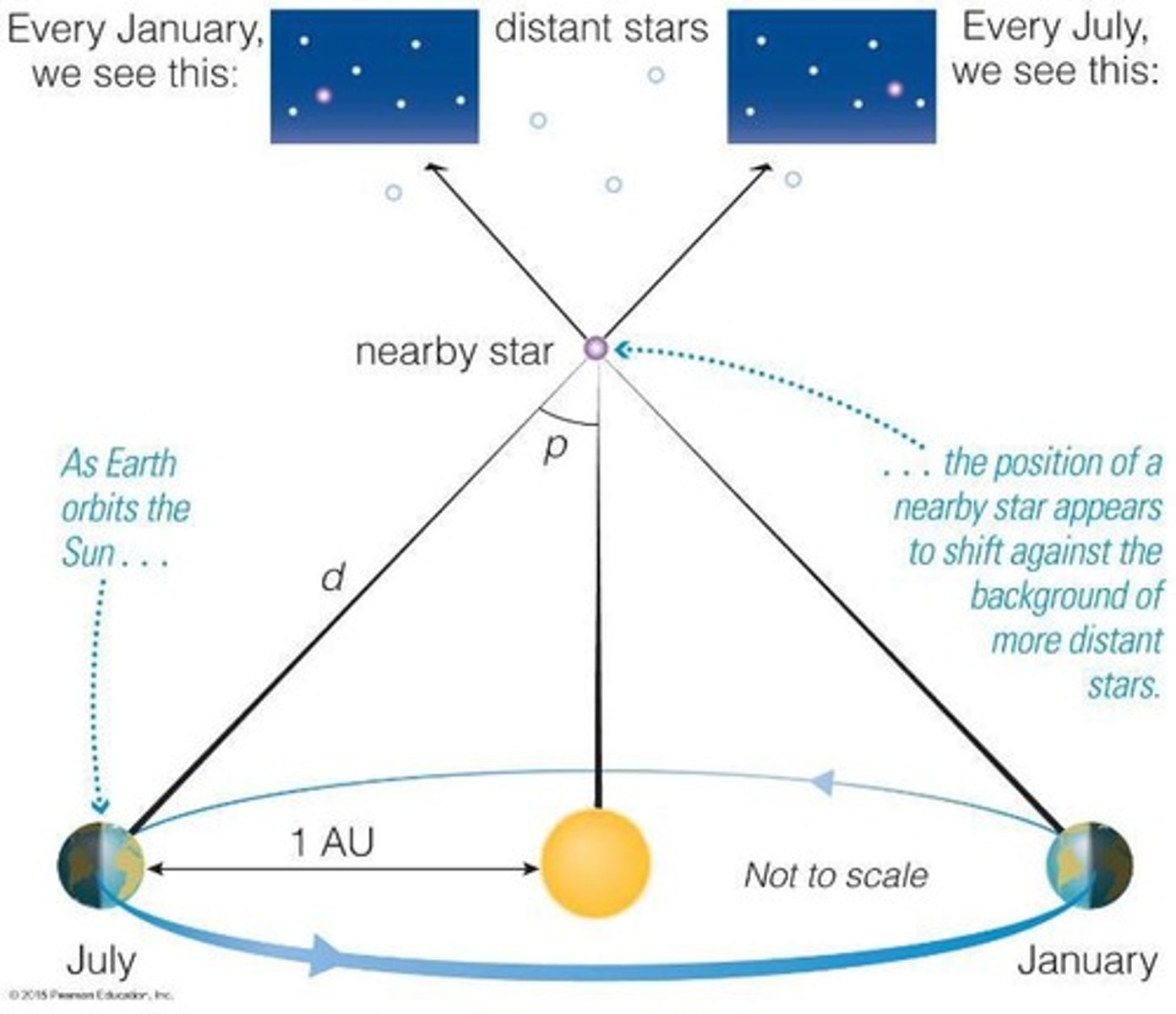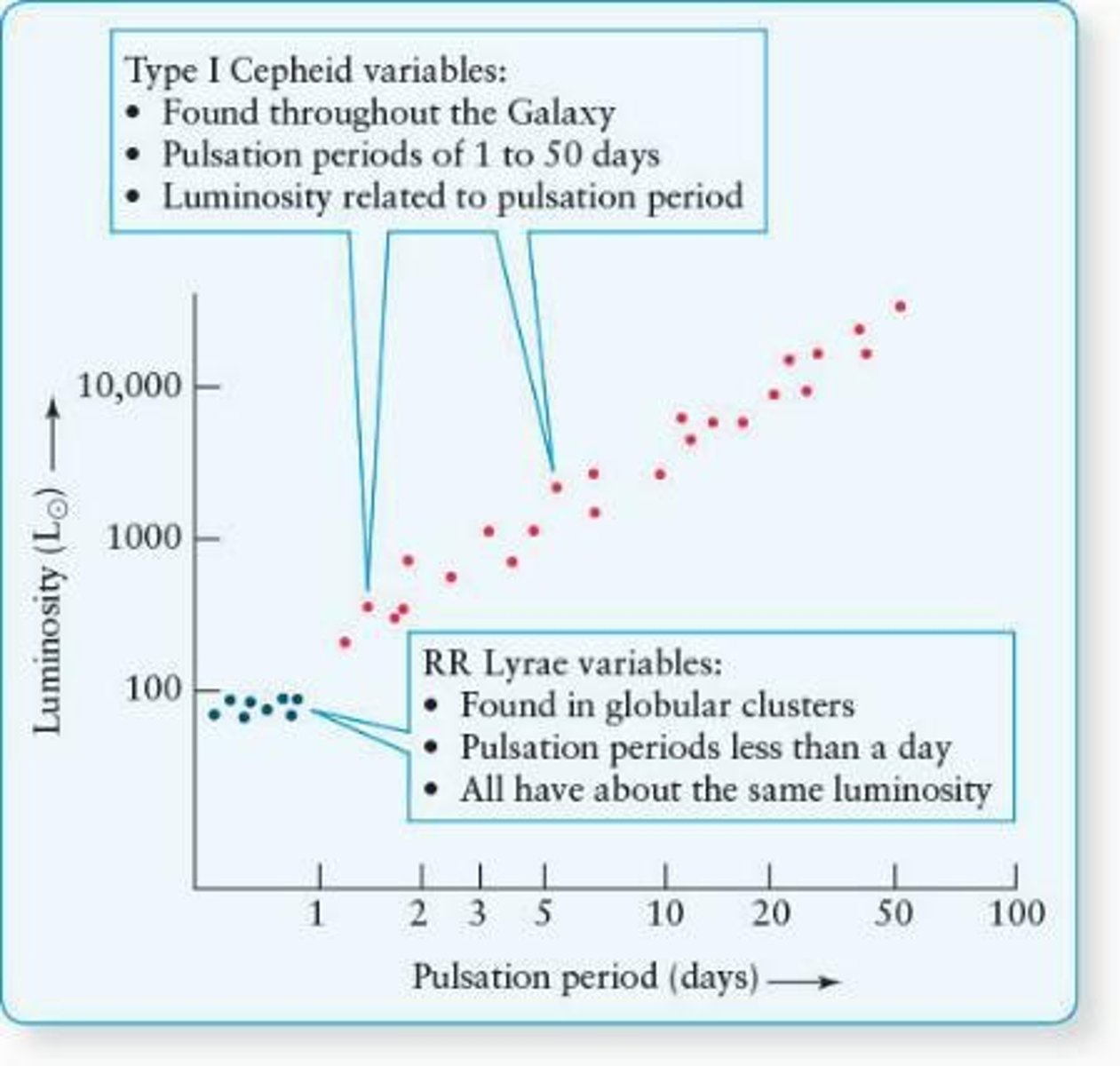Astronomy: Celestial Distances and Distance Measurement Techniques
1/23
There's no tags or description
Looks like no tags are added yet.
Name | Mastery | Learn | Test | Matching | Spaced | Call with Kai |
|---|
No study sessions yet.
24 Terms
What is Messier 80?
A globular cluster located about 28,000 light-years from Earth, containing hundreds of thousands of stars.
What technique is used to estimate distances in astronomy?
A distance ladder, which involves several techniques.

How did astronomers in the 1800s estimate the distance to Venus?
By measuring the time it took Venus to transit across the Sun from different latitudes on Earth.
What modern method is used for precise distance estimates to planets?
Radar measurements.
What is triangulation in astronomy?
A method to measure distances to inaccessible objects by calculating angles from different vantage points.
What is parallax in the context of measuring distances to stars?
The apparent shift in position of a nearby star against distant stars as Earth orbits the Sun.

What is the formula to calculate distance in parsecs using parallax?
d (in parsecs) = 1 / p (in arcseconds).
Who made the first authenticated measurement of the distance to a star?
Friedrich Wilhelm Bessel in 1838.
What is the significance of the H-R Diagram in parallax measurements?
It plots stars measured by Gaia and Hipparcos, showing their luminosity and temperature.
What is the period-luminosity relation for Cepheid variables?
A relationship where the period of brightness variation is related to the star's average luminosity.

Who discovered the cepheid period-luminosity relation?
Henrietta Swan Leavitt while studying variable stars in the Magellanic Clouds.
What are the steps to measure distance using a Cepheid variable star?
1. Find a Cepheid and measure its period. 2. Use the period-luminosity relation to find luminosity. 3. Measure apparent brightness. 4. Compare luminosity with apparent brightness to calculate distance.
What type of galaxy is the Large Magellanic Cloud?
A small, irregularly shaped galaxy near the Milky Way.
What is the role of RR Lyrae stars in distance measurement?
They are closely related to Cepheid variables and help in determining cosmic distances.
What does the term 'spectroscopic parallax' refer to?
A method of estimating distances to stars based on their spectra and luminosity.
What is the significance of the year 1838 in astronomy?
It marks the year when the first authenticated measurement of a star's distance was made.
What does the term 'apparent brightness' refer to?
The brightness of a star as seen from Earth, which can differ from its actual luminosity.
What is the relationship between luminosity and distance in astronomy?
Luminosity is the total amount of energy emitted by a star, while distance affects how bright it appears from Earth.
What are Cepheid variable stars known for?
Their brightness varies in a predictable way, allowing astronomers to use them as distance indicators.
What is the purpose of using radar in astronomy?
To measure distances to planets, satellites, and asteroids with high precision.
What does the term 'distance ladder' refer to?
A series of methods used to measure distances in the universe, building on each other.
What is the significance of the Greek letters in star naming?
They are part of Bayer's system for naming stars based on their brightness within a constellation.
What is the main sequence in the H-R Diagram?
A diagonal band where most stars, including main sequence stars, are found, indicating a relationship between luminosity and temperature.
What are the characteristics of red giant stars?
They are stars that have expanded and cooled, typically found above the main sequence in the H-R Diagram.